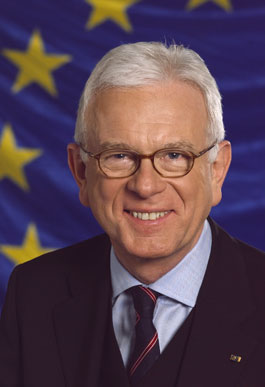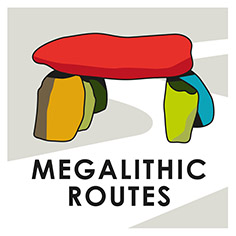Patron
The project Megalithic Routes is under the auspices of Dr. Hans-Gert Pöttering, President of the European Parliament (retd.)
Hans-Gert Pöttering was born on 15 September 1945 in Bersenbrück north of Osnabrück. He never got to know his father, who was killed in action in the final days of the Second World War. This personal experience has had a decisive influence on his political commitment and career in European politics. He now lives Bad Iburg near Osnabrück (in Lower Saxony, Germany). He is married and has two sons.
In 1974, immediately after completing his studies in law, political science and history and gaining a doctorate in philosophy, he began his political career as a spokesman on European politics for the Junge Union in Lower Saxony. In 1979, he was elected member of the European Parliament and has represented the Osnabrück, Emsland and Ostfriesland region since then. He is currently the only member who has served in the European Parliament since 1979.
In his capacity as a European parliamentarian he has held many senior positions, was appointed to honorary posts and awarded numerous dinstinctions, among them
- Deputy Chair of the Faction of the European People’s Party in the European Parliament
- Chair of the Board of Trustees of the “House of European History”
- Chair of the Working Group on the “Middle East”
- Chair of the Subcommittee on “Security and Disarmanent”
In recognition of his outstanding services to Europe, he was elected 12th President of the European Parliament in January 2007. According to the order of rotation, his term of office ended in July 2009 upon the election of his successor Jerzy Buzek from Poland.
In Germany he continued to hold important political positions, for instance as a member of the Federal Executive Board of the Christian Democratic Union of Germany since 1999. In January 2010, he was appointed Chair of the Konrad-Adenauer-Stiftung, one of the most important German foundations with many educational centres and projects focusing on the subjects of peace, freedom and justice. Its worldwide offices coordinate over 200 projects in more than 120 countries.
Professionally, he has worked at the University of Osnabrück since 1976, initially as a research associate and, since 1989, as a lecturer. In 1995 he was made an honorary professor.



